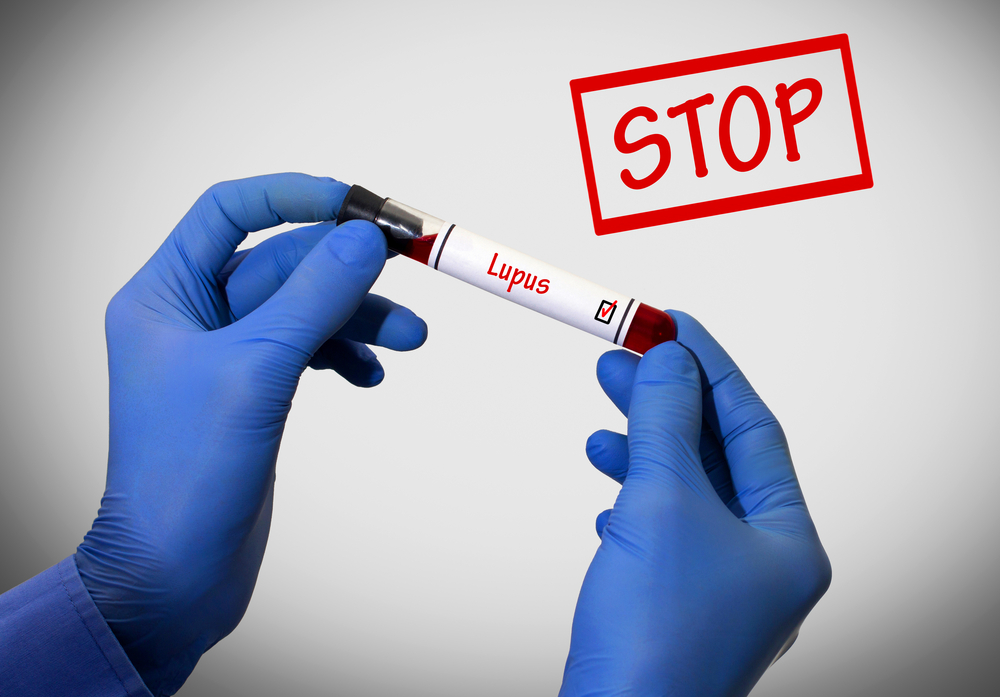Lupus is an autoimmune disease which is denoted by the production of antibodies that cause swelling or inflammation along with a wide range of symptoms. Lupus affects each individual in a different manner. Some people experience only a few meek symptoms and others have numerous, more harsh symptoms.
Lupus symptoms usually start to show up in early adulthood, at some place from your teen years to your 30s. Just like other autoimmune diseases, people suffering from lupus generally have eruption of symptoms followed by phases of cutback. That’s why early signs are easy to banish.

Lupus symptoms include fatigue, pain or swelling in joints and glands, skin rashes, fevers, confusion, headaches, chest pain upon deep breathing, unusual hair loss, pale or purple fingers or toes from cold or stress (Raynaud’s phenomenon) and, swelling (edema) in a leg or around the eyes.
Lupus is a typical autoimmune disease with a large range of clinical manifestations such as rash, oral ulcers, photosensitivity, arthritis, pericarditis, pleuritis, kidney problems, seizures, psychosis, vasculitis, blood cell abnormalities, anemia, leucopenia, myocarditis, thrombocytopenia and, endocarditis.
Complications in brain are a rare case in people with lupus. When present, it may cause seizures, confusion, depression, and, rarely strokes.
Also Read: The importance of consuming a healthy breakfast
The following systems in the body can also be affected by lupus:
Kidneys:
Your kidneys may get inflamed (nephritis) resulting into the impairment of their ability to eliminate waste products and other toxins from the body successfully.
Lungs:
Pleuritis may show up in some people with lupus. It is the inflammation of the lining of the chest cavity that gives rise to complications like chest pain (particularly with breathing) and pneumonia.
Central nervous system:
In some patients, lupus affects the brain or central nervous system. This can cause headaches, dizziness, depression, memory disturbances, vision problems, seizures, stroke or changes in behavior.
Blood vessels:
Blood vessels may become inflamed (vasculitis), affecting the way blood circulates through the body.
Blood:
People with lupus may develop thrombocytopenia (decreased levels of platelets in the blood, which assist in clotting), anemia, or leukopenia (decreased count of white blood cells).
Heart:
Lupus can cause inflammation to occur in the heart itself (myocarditis and endocarditis) or the membrane surrounding it (pericarditis), resulting into chest pain or other symptoms. Endocarditis can cause damage to the heart valves, leading to the thickening of the surface of the valves and development of growths which can cause the occurrence of heart murmurs.
Lupus treatment:
Your treatment will be customized to control lupus symptoms and slow the damage to your organs. Stress reduction and a healthy lifestyle are helpful in lupus treatment along with specialized medications.
Home treatment:
Dealing with stress and weakness: Stress may prompt lupus symptoms. Try to bust your stress. Keep your daily schedule as simple as feasible. Give yourself priority and don’t feel obliged to others.
Delegate to others:
Exercise regularly. For instance, going on a walk daily can reduce stress, refresh your mind, improve your mood, and help ward off fatigue. Use relaxation techniques such as yoga, meditation, and guided imagery to compose your body and mind.
Medications:
Medicines can’t completely cure lupus, but they can definitely control many lupus symptoms and often can prevent or slow damage to organs. Medication based lupus treatment often involves reaching a stability between preventing organ damage, having an acceptable quality of life, and reducing side effects as much as possible. You will often need to meet your doctor to see how you’re doing and check for any side effects.
Your doctor may have to change the dose and combinations of medicines until you reach the best possible balance. Following medications may be given in medication based lupus treatment:
- NSAIDs (Non-steroidal Anti-inflammatory Drugs)
- Antimalarial drugs
- Corticosteroids
- Immunosuppressive drugs
- BLyS-specific inhibitors
- Hormonal therapies such as dehydroepiandrosterone (DHEA)
- Intravenous immunoglobulin (proteins derived from human blood).
Surgery:
Mild or moderate lupus symptoms can’t be treated with surgery. However, it may be helpful for people who have permanent, life-threatening kidney damage. Instead of continuing with long-term lupus treatment with soaring doses of medications that have serious side effects, a kidney transplant or kidney dialysis may be performed.
Also Read: Nutrition Guidelines: Getting Started
Conclusion:
With the basic facts about lupus, you’ll have a better picture of what’s going on. This article can help you to know lupus symptoms and lupus treatments.




